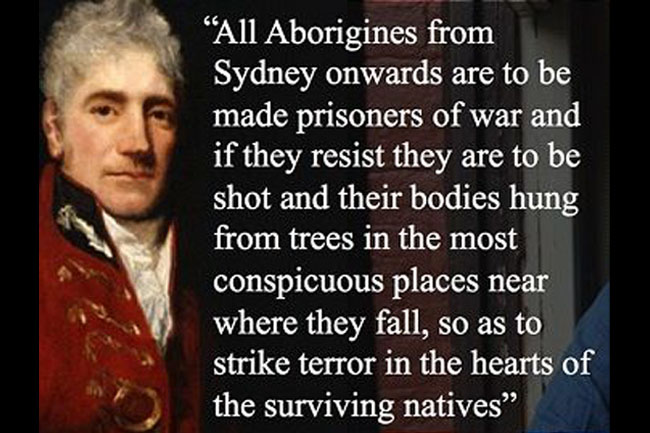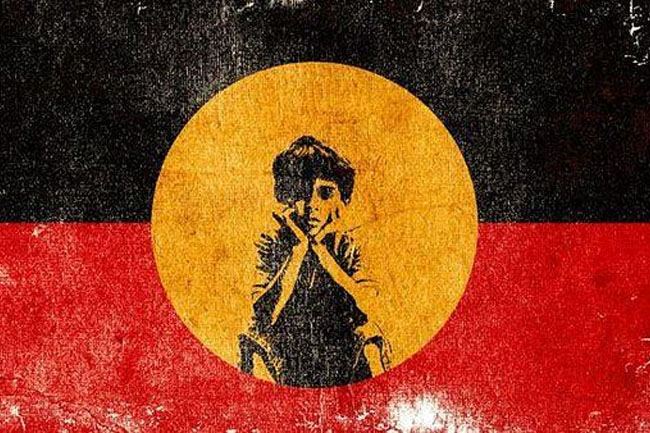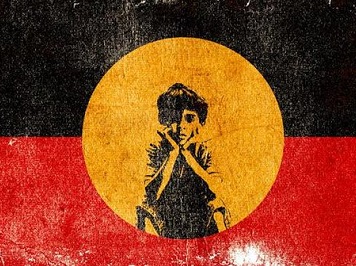Natalie Cromb, IA's Indigenous affairs editor, asks us to give thought to those that are mourning Invasion Day, because, as she says, frankly, 228 years of justifying pain is quite enough.
IMAGINE IF Indonesia had a national celebration on the anniversary of the Bali bombings? What if Port Arthur celebrated with a town festival on the anniversary of the Port Arthur Massacre? Would we be okay with that?
No, of course not, because some lines shouldn’t be crossed.
Why then is this line being crossed with brazen disregard to the Indigenous population of Australia? Has the suffering not quite been enough? Need to rub salt in the still bleeding wounds of the past? Because let me tell you, the pain is not isolated to the past — it continues as do the mistakes of the government.
Australia, January 26 — the land where we celebrate with nationalistic buffoonery with complete disregard to the Indigenous Australians mourning. Even worse, it is the land where such mourning is not only an inconvenience but is downright offensive to the true blue Aussies who have made this "the lucky country."
It is important for the non-Indigenous readers to note that even under British law, this land was never ceded and therefore, this land was and remains to be stolen in the true sense of the legal definition. The invasion of this land and the events that followed were and are the most devastating in the history of not only the original peoples of this land but the land itself.
There is a tremendous divide between Indigenous and non-Indigenous Australians despite 228 years of inhabiting this land together and it is never more obvious than on January 26 annually.
This is the date that the Government has declared Australia Day and it has been a nationalistic date of celebration for all things "Aussie" and if you don't like it, you can "go back to where you come from."
But what if you come from here and your ancestors are of this land and there is nowhere else to go because this land holds your cultural identity?
Then, you are expected to be quiet and not make a fuss because this day is not about you — this day is about STRAYA!!
I know that there is no other day of the year that would make sense for non-Indigenous Australians to hold this day. What about we get an emu to peck at a calendar and choose a date that way? Any day is better than January 26.
Or what about the date that the country was federated, better yet — how about we scrap the monarchy and celebrate becoming a Republic when we get our acts together, or my personal favourite (letting my bias show); what if we had meaningful dialogue with our Indigenous nations and entered a Treaty/ies?
Anyone who knows my campaign for Treaty/ies knows that I have preached that if we were to sign a Treaty/ies, that was ratified with the approval of all Indigenous nations, the date of signing this Treaty/ies would be a momentous occasion in Australia's national identity and THIS day would be a more appropriate day of national pride.
I feel that this will be the iconic moment of change that our ancestors have agitated for and it will be a key moment where the national identity changes and becomes more inclusive and respectful. Moreover, it will be an occasion that has come from something positive not as is the case currently where Indigenous people mourn the loss of land, culture and countrymen to the invasion of the British.
January 26 is the date that we mourn.
Yes. #qldpol #auspol #InvasionDay "#AustraliaDay" (Pic courtesy of https://t.co/aSfOVQSzni) pic.twitter.com/3DZAOiUFVE
— Queensland Greens (@QldGreens) January 24, 2016
Put simply, it is the day that life as it was known was destroyed. It represents the end of the harmonious co-existence with the land. It represents the onslaught of disease, massacres, murders, rapes, slavery and attempted genocide of our people.
We were no longer walking the land free to celebrate custom, culture and ceremony and exist within the lores of the clan and to protect and be provided for by the land. We became hunted and hated and much of the past continues to bleed into contemporary society some 228 years later.
For 228 years later, we are still having the conversations we have always had in the hopes that maybe this year non-Indigenous Australians will “get it”. Maybe this time they will listen instead of arguing with us that the way we feel is wrong and maybe this time they will listen as though we have something valuable to say.
The thing is, and this is important, we just want Australians to know the truth. We want Australians to be educated not only on the truth of the past, but of the truth right now.
Why? Because humanity has to, at some point, come into play. Human decency has to trump prejudice – otherwise – what is the point? Once Australians are educated on the truth of history and the current state of oppression of Indigenous Australians, I believe that they will be compelled to do something to right the wrong.
Time for a #republic, with a 'Bill of Rights' (responsibilities), inclusion and move #Australia Day to that new day! pic.twitter.com/S1dWLe8Uaa
— Darrell Morrison (@Dazr) February 11, 2015
We want Australians to consider their part in society and how they have individually contributed to a discourse of racism and continued oppression. By not being a part of the solution, you are indeed a part of the problem and, let me tell you, it is never okay to blame the victim of crime and this is no different.
We would never tell a rape victim to "get over it" but thousands of Aboriginal women were raped — should they “get over it”? Should their children “get over it”? Would we tell the families of the Port Arthur massacre to “get over it”? And yet, with over 80 separate massacres being perpetrated against Indigenous Australians, we are told to ‘get over it.’
It is impossible for Indigenous Australians to “get over it”. What has happened and continues to happen is devastation that echoes for generations, without a chance for healing because Indigenous Australia is viewed with such contempt and vitriol that the media has branched out from informing the public of truth to becoming history revisionists.
The conversation needs to change. The victims need to be properly acknowledged as the innocent party — Indigenous Australia needs to stop being blamed by white Australia for the actions of White Australia.
Telling Indigenous Australia to be thankful for this country is tantamount to telling a victim of domestic violence to be thankful he loves her enough to hit her.
Before all of the intersectional feminists try to jump on me for DV reference, let me remind you that apart from massacres and dispersals that white colonists doled out, they also rapes, murdered, bashed, tortured and stole children. Incarcerated, poisoned and starved the Indigenous population whilst enslaving.
White Australia’s ancestors violently devastated Indigenous Australia and contemporary White Australia lives in denial and thinks that they do not have culpability.
Benefiting from the crimes of the past and living in ignorance to the plight of those who suffered so you didn’t have to, or worse – being hateful to those who suffered so you didn’t have to – is exactly why 228 years later Indigenous Australia continues to mourn on January 26.
We just didn’t think we would have to contend with the rest of the country celebrating on the day that we mourn and belittling our pain in the process.
This Australia Day — I am not asking you to change how you identify as Australian or spend the day. I am asking you to give thought to those that are mourning Invasion Day and not be an asshole about it because, frankly, 228 years of justifying our pain is quite enough I think.
Aboriginal People tell the Australian Government that the time is long overdue for genuine negotiation on treaties.
You can follow Natalie Cromb on Twitter @NatalieCromb.

This work is licensed under a Creative Commons Attribution-NonCommercial-NoDerivs 3.0 Australia License
Any one without the others has much less meaning. #AustraliaDay vs #InvasionDay, #OzRepublic, #NewFlag DO THEM ALL. pic.twitter.com/sF4WUIbdYW
— Mike Fitzsimon (@MikeFitzAU) January 23, 2016









